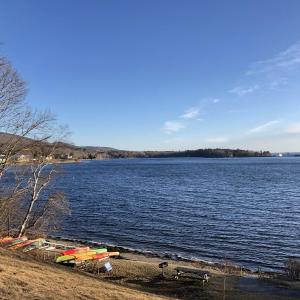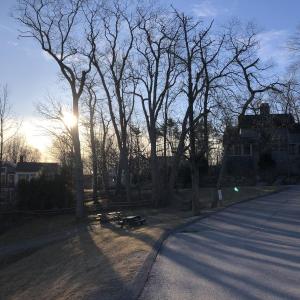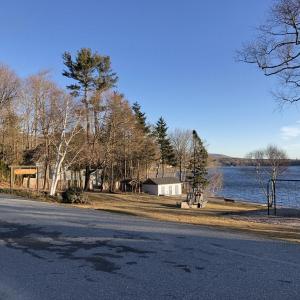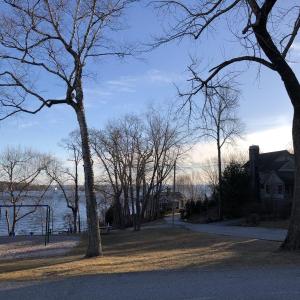Herbicide from private property leached onto Laite Beach, Camden Select Board calls for criminal charges
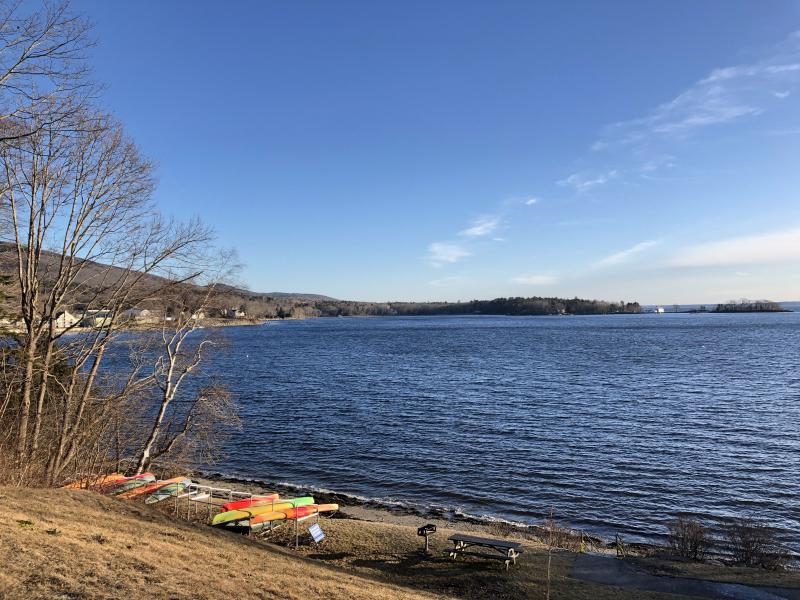 Laite Beach, on Camden Harbor, on a sunny March 8, 2024 morning. (Photo by Lynda Clancy)
Laite Beach, on Camden Harbor, on a sunny March 8, 2024 morning. (Photo by Lynda Clancy)
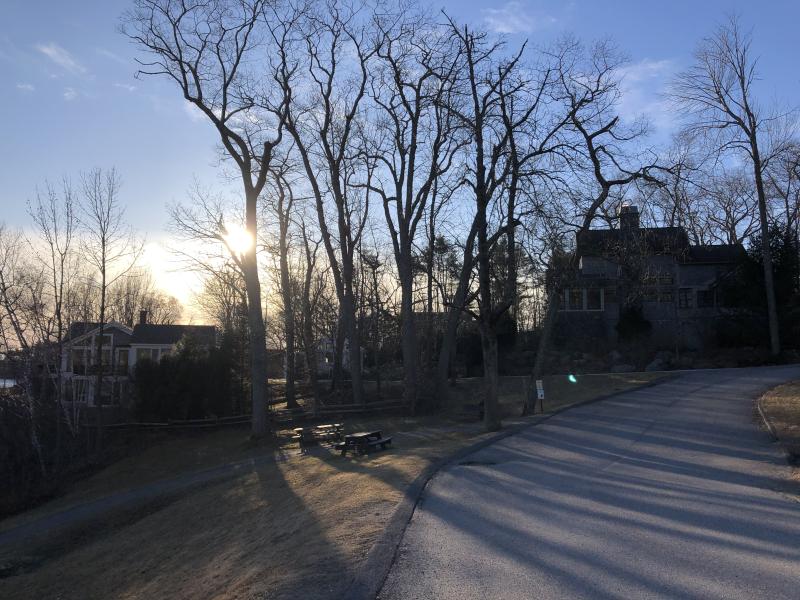 The properties of Lisa Gorman, on the water, and the Arthur and Amelia Bond are adjacent to Laite Beach Park, separated by Metcalf Road.
The properties of Lisa Gorman, on the water, and the Arthur and Amelia Bond are adjacent to Laite Beach Park, separated by Metcalf Road.
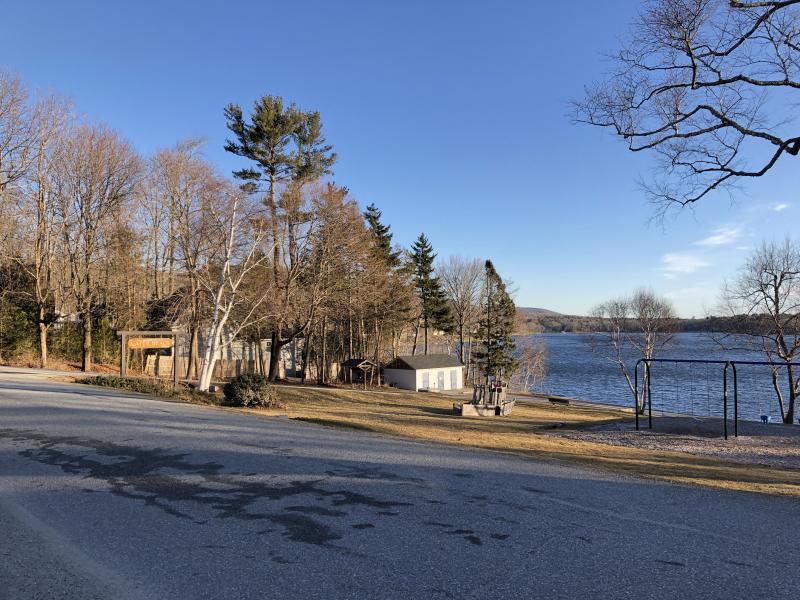 Laite Beach Park in Camden.
Laite Beach Park in Camden.
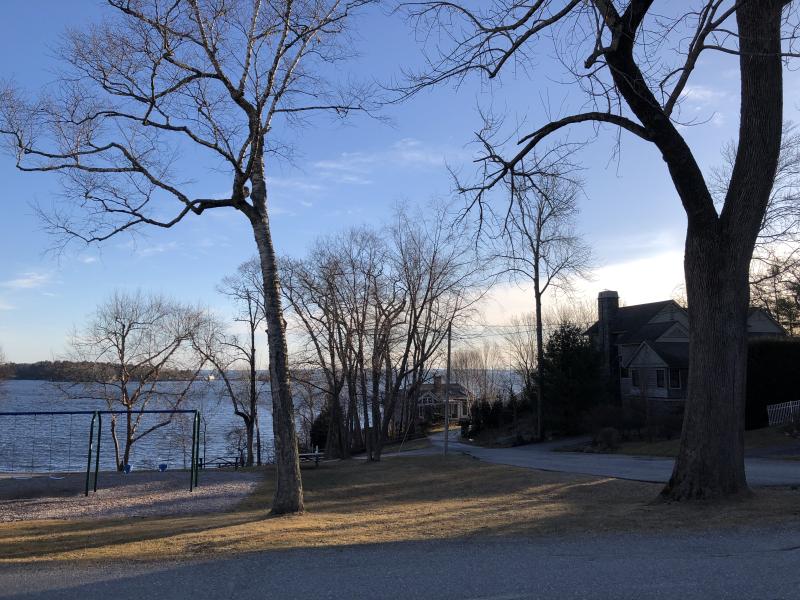 The private property where the chemical Alligare had been detected is on Camden Harbor.
The private property where the chemical Alligare had been detected is on Camden Harbor.
 Laite Beach, on Camden Harbor, on a sunny March 8, 2024 morning. (Photo by Lynda Clancy)
Laite Beach, on Camden Harbor, on a sunny March 8, 2024 morning. (Photo by Lynda Clancy)
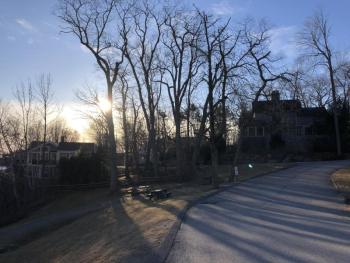 The properties of Lisa Gorman, on the water, and the Arthur and Amelia Bond are adjacent to Laite Beach Park, separated by Metcalf Road.
The properties of Lisa Gorman, on the water, and the Arthur and Amelia Bond are adjacent to Laite Beach Park, separated by Metcalf Road.
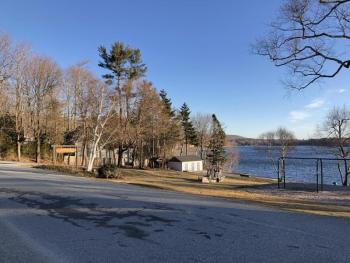 Laite Beach Park in Camden.
Laite Beach Park in Camden.
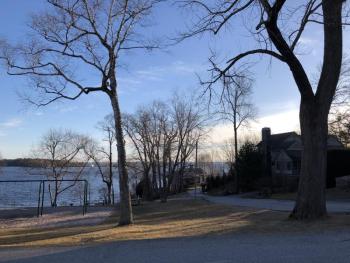 The private property where the chemical Alligare had been detected is on Camden Harbor.
The private property where the chemical Alligare had been detected is on Camden Harbor.
CAMDEN — Samples taken from test bores at the publicly-owned Laite Beach on Camden Harbor have tested positive for Alligare, the herbicide used illegally on nearby property.
That 2021 herbicide application had resulted tree and vegetation poisoning, followed by a $210,000 consent agreement between private landowners Arthur III and Amelia Bond, of St. Louis, Missouri, and the Town of Camden, and a $1.5 million private settlement between the Bonds and their neighbor,Lisa Gorman.
A more detailed analysis and risk assessment of Laite Beach are to follow, but municipal leaders are angry, and voted March 6 to elevate their concerns to the office of Maine’s Attorney General and the state Legislature.
“It’s [Alligare] in our park,” said Board Chair Tom Hedstrom, at a March 6 Select Board meeting. “It’s on our beach, where our citizens, our children, our pets go.”
He said the issue is serious, and, “we should take this with the utmost severity right now.”
“I would make a public call right now to our Attorney General and our District Attorney to seriously consider criminal charges against the Bonds for this application of poison into our property, our resident’s property, our harbor, and endangering all of us,” said Hedstrom.
He made a motion to ask town staff to write a letter to the Attorney General and District Attorney, encouraging them, “to take full force of the law against the Bonds, for the poison application they put on Metcalf Road that has now spread into our common park, common beach and now into our harbor.”
He made a second motion to encourage state representatives and senators to amend Maine law to be more restrictive of herbicides/pesticide applications and to impose penalties, financial, as well as potentially criminal, if the use is proven to have been made with intent and malice.
A third motion was made by Select Board member Chris Nolan for the town to implement recommendations made in a consultant report concerning the discovery of Alligare at Laite Beach.
That environmental and engineering company, Seevee and Maher, is based in Cumberland, and had been contracted by Camden to collect water and soil samples at Laite Beach following the consent agreement signed late in 2023 between the Town of Camden and the Bonds.
The three motions earned unanimous Select Board approval at a vote of 5 to 0.
The $210,000 consent agreement was signed Nov. 8, 2023, and followed more than a year of investigations and attorney negotiations after the herbicide had been illegally applied to land on Metcalf Road, which is adjacent Laite Beach. Part of the consent agreement included a clause requiring soil testing of Laite Beach at the Bond’s expense, with any subsequent testing and remediation costs also assigned to the Bonds.
Seevee and Maher recently submitted a preliminary report to the town listing the detection of Alligaie, and at the March 6 Select Board meeting, Town Planning and Development Director Jeremy Martin said that while the Maine Dept. of Environmental Protection has no standards for Alligare, given that it is not registered in the State of Maine, the federal Environmental Protection Agency does.
Alligare is the trade name of the chemical and/or toxic substance tebuthiuron.
“I will say that it [the sample reading] does not exceed the EPA standards,” said Martin, March 6. “But from my perspective, that is kind of an irrelevant issue. It would be worse if it did exceed the standards. But the fact is, we still have herbicide found in water samples and soil.”
Seevee and Maher recommended continued monitoring of Laite Beach, which is a popular public beach, where people swim during the summer, and enjoy year-round recreation, both in the park and on the shore.
The company also recommended a risk assessment to determine what is safe and what is not safe.
Martin reported that he had met with representatives of Maine’s Board of Pesticide Control, which, in turn, consulted with the Maine Attorney General’s office.
“They seem to be more aggressive than normal with this issue,” he said, adding that as of Friday, the state was to be at Laite Beach taking its own samples.
“For their purposes, because they will be doing an investigation and if they find it, they will be bringing a case against the Bonds, again,” said Martin.
He told the Select Board that he had contacted attorneys for the Bonds March 4 and 6, “to let them know that we have found this, and that they are going to be on the hook for it.”
“I have not heard back from them,” said Martin.
He added that he regarded any presence of Alligare as a trespass.
“We have policies that we cannot even use herbicides on town property,” said Martin. “Certainly having an abutter or someone placing it their land and it ends up on our property presents a significant problem that we need to deal with.”
He said more sampling is in order, and said a risk assessment may cost $40,000.
“We will expect the Bonds to pay for that,” said Martin.
He said Lisa Gorman had removed dirt fill on her property that abutted the Bond property. Additionally, he reported that the AG’s office would gain access to the Bond property to take samples there, as well as Gorman’s property, to identify location of the herbicide.
“Am I correct that this chemical does not degrade but it does move with water,” asked Select Board Chair Tom Hedstrom.
“Yes,” said Martin. “It is very water soluble.”
The spread of the herbicide is not surprising, with rain and snow melt assisting with its migration, said Hedstrom, “to our park, our beach and our harbor.”
Town Manager Audra Caler agreed, saying the chemical, used on pasture land in the Midwest, is mobile through groundwater. Usage precautions call for at least 50 feet of soil as a buffer to groundwater, she said.
“The amount that they applied in the area, when you look at the recommendations, greatly exceeds what should have been applied, as I understand,” said Martin. “I had that conversation with pesticide control this afternoon.”
Hedstrom pointed out that humans have, “continued to become more educated about the effects of chemicals in our ground and sometimes the standards are way behind what is actually dangerous, and I would submit that any amount of this is dangerous.”
Martin agreed, saying: “because something meets an EPA standard – there are a lot of things that we allow in this country that the EU does not allow, whether that is food additives, chemicals we say they are safe, the EU says they are not — we keep using them. We may never change our standards. It is just the way the country operates. But I agree with you. There should be none on our property.”
Board member Sophie Romana asked how the town should handle potential health risks.
“How should we mitigate the risks and inform visitors and citizens,” she asked.
Martin said he would reach out for guidance, and would talk further with the Board of Pesticide Control.
“I am so angry,” said Romana. “And I want every citizen in Camden as angry as I am to come along with us and voice your anger and disappointment.”
Board member Alison McKellar said she agreed with Hedstrom on taking a strong position.
“The agency response in almost all occasions when the government is involved — the level of response in the short and long term — depends on input from the public,” she said. “We define a lot of the time how a violation is viewed. There is a tendency from the town to go slightly down the path of least resistance and it is the private property owners that put in big money in their interests. Normally any individual resident in Camden does not have the resources to fight this kind of battle. These are opportunities for us, collectively as as town, to use the power of the town....”
She noted the presence of other chemicals being applied to properties around town, and suggested the time had come to craft ordinance language governing herbicide/pesticide applications.
The consent agreement
The Bonds own a house and a parcel of land at 1 Metcalf Road, in Camden. Next door, Lisa Gorman, of Yarmouth, owns a home on another piece of property, at 3 Metcalf Road.
It was in 2022 that Camden learned of the illegal application of Alligare on Gorman’s waterfront property that killed trees and vegetation.
The consent agreement said, “it is alleged that the Bonds trespassed onto the adjacent real residential property owned by Lisa Gorman at 3 Metcalf Road by application of an herbicide referred to as the chemical and/or toxic substance tebuthiuron, also knowns as Alligaire 40P.”
At a July 2023 Select Board meeting, Camden Planning and Development Director Jeremy Martin told the Select Board that the, “Bonds have accepted responsibility for what they have done.”
The herbicide resulted in dead trees and vegetation in the shoreland zone, and violated two regulations of town ordinances: Cutting too close to the shoreline and clearing too much vegetation from the property. For that, Camden had issued a Nov. 28, 2022 violation notice to the Bonds.
Camden does not have regulatory oversight of pesticide/herbicide applications on private property, but its land use ordinance regulates tree-cutting in the shoreland zone.
Maine’s Board of Pesticide Control, however, regulates herbicide applications, and on July 21, 2023 that state seven-member board voted unanimously in favor of its own consent agreement between the State of Maine and the Bonds, imposing a $4,500 fine. Click here the Maine consent agreement.
Meanwhile, Gorman and her attorney were also working on a remediation plan for the loss of trees and vegetation, as well as a financial settlement with the Bonds. The latter is described in the consent agreement as “substantial.”
“The settlement with Mr. Gorman was substantial – exceeding $1.5 million,” wrote Martin, in an October 2023 memo to the board.
On July 20, Gorman’s attorney, Daniel Nuzzi, with the firm Brian and Isaacson, wrote to Martin, outlining his client’s perspective. He said the application of herbicide and cutting of tops of a trees was done without Gorman’s permission or authorization.
“It is my client’s position that the cutting the tops off numerous trees, and applying a strong herbicide on her property was admitted to have been done by the Bonds to improve their view of Camden Harbor,” he wrote. “There should be no misperception concerning a brown tail moth problem with Mrs. Gorman’s property, as none existed.”
Nuzzi’s letter outlined the timeline, saying by Spring 2022, a large number of trees and shrubs, as well as ground cover, were suddenly starting to die.
A Dec. 22 letter received by the town from attorneys for Bonds said: “Amelia Bond reports that in the Summer of 2021, she recalls identifying two dead and/or dying oak trees on the border of the Bond property. Although she cannot recall the specific time, application process, or product, Mrs. Bond believes that she applied a chemical sold under the brand name Alligare to the dying trees.”
The letter said that Bond transported the herbicide from Missouri to Maine in a four-pound bag.
The proposed Camden consent agreement said the Bonds agreed to pay:
• All attorney fees accrued by Camden;
• The estimated costs for soil monitoring testing, which will be conducted by Sevee and Maher Engineers, of Cumberland, on behalf of the town on Laite Beach park. The estimate for that project is $30,700;
• Should there be contaminated soil or vegetation that needs replacement, the Bonds would be liable and responsible for associated costs;
• The Bonds are to pay penalties: “Due to the Bonds working cooperatively with Gorman, the State of Maine, and the Town to bring a satisfactory resolution to these violations, the Bonds agree to pay $1,000 a day, per violation for the two [municipal zoning] violations, based on the 90 days between when Gorman began site remediation and restoration (April 19, 2023) and the date the site remediation and restoration was completed (July 17, 2023).” That amounts to 90 days, which totals $180,000.
Reach Editorial Director Lynda Clancy at lyndaclancy@penbaypilot.com; 207-706-6657

